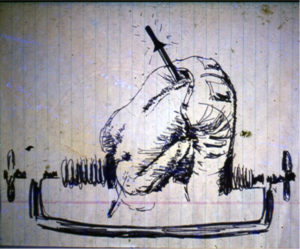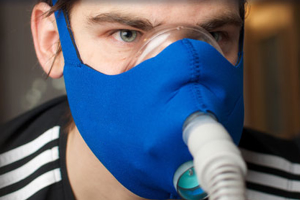David Bresler is a superb clinician. I’ve referred people to him for years.David makes the world a better place.
– Larry Dossey, MD
David Bresler is a superb clinician. I’ve referred people to him for years.David makes the world a better place.
– Larry Dossey, MD
I first met David when he was helping my wife through her chemotherapy for her breast cancer — where she got positive results from visualization, and is now a 10 year survivor – vibrantly. I then when on to work with David on several projects related to expanding his practice.
I found David to be a thoughtful, generous professional with an empowering positive attitude. I learned much from him not just in the specifics of the practice, but also an overall approach to life.
– Gene Cameron
David is an extraordinary teacher and insightful doctor — very rare these days. He works with a body’s natural healing abilities rather than reaching for quick-fix pharmaceuticals. His methods are ancient and yet cutting-edge at the same time (a paradox, yes). His membership in the healing profession restores the honor it has traditionally earned. I give him my highest recommendation.
– Vicky Varner
Simply put, Dr. David Bresler is a master. I’ve followed Dr. Bresler’s work for a number of years, have had the honor of studying Interactive Guided Imagery with him and his center’s faculty and it has been one of the most memorable experiences of my life. Dr. Brelser’s depth of knowledge and expertise is amazing, he gives completely to his students and clients and changed my life in ways I will never be able to repay. If you have the chance to work or study with Dr. Bresler, run … don’t walk to learn all he has to offer. On a personal note, Dr. Bresler is warm, compassionate, and a truly stellar man.
– Kirwan Rockefeller, PhD
David Bresler is one of the brightest, kindest, and most effective health practitioners I have ever known, in my 40 years of medical practice. an innovator and leader in the fields of holistic medicine, acupuncture, and mind/body medicine, he is a doctor’s doctor. I have known Dr. Bresler as a colleague, a teacher, a practitioner and a friend for over 3 decades. Every patient I have referred to him has nothing but positive feedback about the care they have received from him, and I refer everyone who calls me from the Los Angeles area to him. He’s a truly remarkable psychologist, acupuncturist, and healer.
– Marty Rossman, MD
 Human beings automatically respond to the perception of threat or danger by the release of adrenalin and other hormones that result in increased heart and breath rate, increased blood pressure, changing the flow of blood to large muscles, etc.) This is meant to be a temporary overdrive system to meet the challenge that is threatening or dangerous.
Human beings automatically respond to the perception of threat or danger by the release of adrenalin and other hormones that result in increased heart and breath rate, increased blood pressure, changing the flow of blood to large muscles, etc.) This is meant to be a temporary overdrive system to meet the challenge that is threatening or dangerous.
When we become chronically stressed, however, the body can be pushed beyond its ability to re-establish homeostasis (balance), and its recuperative abilities can become exhausted. That’s why learning to relax is now considered a survival skill for maintaining health in the complex and stressful world in which we now live.
According to the scientific method, you cannot reliably change anything that you can’t measure. Although most everyone today will acknowledge that they have a lot of stress in their lives, very few know how to regularly and reliably measure all of the effects that it is having upon us.
At the end of each day, we recommend that you take a few minutes to complete our Daily Stress Check List. This will allow you to keep track of the ways that stress may be causing certain physical symptoms, may be affecting your mental processing and daily behaviors, and may be evoking stress related feelings.
You can download a copy of the Daily Stress Check List by clicking here. If you are consistently checking more than 12 boxes, contact us at 310-474-2777 for a stress management program that really works.
 Our nation is in the midst of an unprecedented opioid epidemic. More people died from drug overdoses in 2014 than in any prior year on record, and the majority of drug overdose deaths (more than six out of ten) involved an opioid. Since 1999, the rate of overdose deaths involving opioids—including prescription opioid pain relievers and heroin—nearly quadrupled, and over 165,000 people have died from prescription opioid overdoses.
Our nation is in the midst of an unprecedented opioid epidemic. More people died from drug overdoses in 2014 than in any prior year on record, and the majority of drug overdose deaths (more than six out of ten) involved an opioid. Since 1999, the rate of overdose deaths involving opioids—including prescription opioid pain relievers and heroin—nearly quadrupled, and over 165,000 people have died from prescription opioid overdoses.
Public health officials are calling the current opioid epidemic the worst drug crisis in American history, killing more than 33,000 people in 2015. Overdose deaths were nearly equal to the number of deaths from car crashes. In 2015, for the first time, deaths from heroin alone surpassed gun homicides
To help deal with this problem, physicians, dentists, and other prescribers must consider the numerous effective alternatives to opioids for post-operative, acute, and chronic pain control. These include acupuncture, massage and physical therapy, transcranial and interferential neurostimulation, phonophoresis, intermittent hypoxic training, nutritional and herbal supplements, medical hypnotherapy, biofeedback training, and interactive guided imagery(sm), among others.
Using these alternative approaches, we have been successful in helping our patients to significantly reduce or eliminate their opiate and other prescription pain medicines without the discomfort frequently associated with narcotic withdrawal. Contact The Bresler Center at 310-474-2777 for more information.
 Many of our patients who have not responded favorably to prior pain control treatments are now reporting significant relief from using a small portable transcranial stimulator. This unit has been FDA approved for post-operative pain, insomnia, and depression, and gently attaches to each ear lobe using small electrode clips. It generates a tiny but powerful 5 µamp signal using two AA batteries. Our distributor allows our patients to try the unit for a week to see if it helps for a rental fee of $50.
Many of our patients who have not responded favorably to prior pain control treatments are now reporting significant relief from using a small portable transcranial stimulator. This unit has been FDA approved for post-operative pain, insomnia, and depression, and gently attaches to each ear lobe using small electrode clips. It generates a tiny but powerful 5 µamp signal using two AA batteries. Our distributor allows our patients to try the unit for a week to see if it helps for a rental fee of $50.
Another electronic device we use is called an interferential neurostimulator. Although it was originally invented in Germany, it was notoriously used by the Russian weight lifting athletes in the 1950s to build larger and more powerful muscles. This is now called “Russian Muscle Stimulation” and it is being used to build muscle mass not only for elite athletes but for patients with myasthenia gravis, multiple sclerosis, or other muscular degenerating conditions as well. This unit is also highly effective for alleviating muscle pain and spasms.
Another advance in treating neck, back, joint, and muscle pain is the topical application of cannabidiol (CBD), a powerful and effective anti-inflammatory using therapeutic ultrasound to drive it deeply into joints and muscle tissues. Pain relief is immediate and CBD is now legal in all 50 states. This technique is called phonophoresis and we’re finding that iit’s particularly effective when combined with acupuncture and therapeutic massage.
If you are still experiencing chronic pain, we may be able to help. To find out, call us at 310-474-2777 to schedule an appointment.
 Many of the elite athletes we treat are greatly benefitting from Intermittent Hypoxic Exposure (IHE) which involves breathing air with reduced oxygen content for short periods of time which makes your body respond as if you were at a much higher elevation even though your still in LA near sea level.
Many of the elite athletes we treat are greatly benefitting from Intermittent Hypoxic Exposure (IHE) which involves breathing air with reduced oxygen content for short periods of time which makes your body respond as if you were at a much higher elevation even though your still in LA near sea level.
This is accomplished by breathing into a face mask attached to a specialized electronic machine while resting prone and receiving acupuncture, therapeutic massage, or just while relaxing for a short period of time. A pulse oximeter is used to check the amount of hypoxia achieved and to maintain safety during the procedure.
The health benefits appear to be amazing, including greatly improved athletic performance (as demonstrated for many years by the Russians), greater resistance to free radicals, a shift from burning protein to fat as an energy source, and recent research studies are reporting improvement in patients with asthma, COPD, Parkinson’s disease, Alzheimer’s disease, and cancer. The only contra-indications appear to be for patients with epilepsy or other seizure disorders.
While the use of IHE is relatively new to the Western world, scientists in the Soviet Union have been researching and employing it since the 1930’s. Their research has involved how IHE can enhance sports performance, and also the treatment of chronic lung diseases, bronchial asthma, hypertension diabetes mellitus, Parkinson’[s disease, emotional disorders, and even radiation toxicity.
To find out more, check out the following links:
▪ The Science of Altitude Training
▪ Comparison of Altitude Training Systems
▪ Intermittent Hypoxic Exposure
▪ Intermittent Hypoxic Training
If you’d like to personally experience IHE at the Bresler Center, please give us a call at 310-474-2777 or email us at info@breslercenter.com
Nearly everyone has experience emotional trauma at some time in their life. If you’ve even been seriously humiliated, the Talmud calls it “murder of the soul”, a very serious offense in many cultures.
Like every other species on the planet, we respond to serious trauma by fight, flight, or freeze. Unlike lower animals that tend to freeze physically, we tend to freeze emotionally, and even though we know we survived it, it feels like it’s still going on.
If thinking about a past trauma causes no emotional reaction or discomfort, it’s been processed, completed, and not broken so don’t attempt to fix it. However, if those thoughts cause your throat to tighten, your heart to speed up, your stomach to churn, and strong feelings to surge through your body, it’s not finished and probably still affecting your life in many ways. Fortunately, with the help of EMDR (Eye Movement Desensitization and Reprocessing) and IGI (Interactive Guided Imagery), we have had great success in rapidly helping patients to overcome major trauma such as the death of a loved family member or pet, motor vehicle accidents, home invasion robberies, sudden job or economic losses, and the diagnosis of a life-threatening illness.
Dr. Bresler has continued to research and develop this combination approach for more than 25 years and reports that in as little as five or six visits, many patients have been able to completely process and overcome traumatic recollections and thoughts that have plagued them most of their adult life. While years of prior therapy with analysis, CBT, DBT, or other approaches did little to help, they report that treatment at the Bresler Center has enabled them to recall the prior trauma with little or no discomfort whatsoever.
If you’ve experienced trauma that is continuing to cause emotional or physical discomfort, this combination can probably help help you, too. Call us at 310-474-2777 so you give it a try.